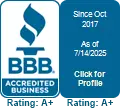What Are Charging Orders and How Do They Affect My Limited Liability Company?~3 min read
Congratulations! You are opening your first business and you have decided to form a single-member limited liability company (LLC). The LLC provides similar liability protection as that of a corporation. For example, if there is a judgment against the LLC for money damages, in most cases, the LLC judgment creditor cannot attach your personal assets. However, what if one of your personal creditors has a judgment against you? If you had incorporated, the judgment creditor may be able to reach your shares in the company as they are personal assets. But can the creditor reach the assets of your single-member LLC? This is where the charging order comes in. A creditor may ask the court to enter a charging order requiring the company to forward any distributions you are entitled to receive from the LLC to the creditor. Although the charging order can reach distributions (usually profits) payable to you, it generally cannot require the LLC to forward any monies which are earned income (i.e. wages) and it cannot force the LLC to make distributions. In other words, the judgment creditor doesn’t get to stand in your shoes and vote your membership rights.
But wait a minute – if you are the sole member and the charging order doesn’t allow the creditor to direct any distributions from the LLC, what if you just don’t take any distributions until the statute of limitations on the judgment expires? In that case, the judgment creditor does not receive anything.
Well, that seems too easy – and it is. If the creditor can show that the judgment cannot be satisfied in a “reasonable time,” the creditor has the right to challenge the LLC protection. If successful, the court would force a sale of both your financial and management rights of the LLC. If there are significant assets of the company, this could be a financial disaster for the member, both personally and for his or her business. Often, the creditor is the successful bidder at the execution sale and, the creditor can take over your company and, presumably, vote that the LLC pays the distributions or sell off the assets to satisfy its judgment. But whether it is the successful bidder or not, the creditor would get paid what it is due from the proceeds of the execution sale.
For all of the reasons above, you may want to consider bringing in a spouse or adult child as a minority member. This makes your company a multi-member LLC with you as the manager. As a multi-member LLC, the judgment creditor can still get a charging order against your economic interest in the LLC but it cannot force a transfer of your noneconomic interest (i.e. voting and management rights). The state law makes a distinction between multi-member and a single-member LLCs to protect the other members of the LLC under a theory called “pick your partner.” In other words, the other LLC members did not intend to become partners with your creditor and the state is reluctant to force them to accept the creditor as a potentially unfriendly owner of your interest.
When forming your business and choosing the correct entity, contact the attorneys at Parnell, Michels & McKay, PLLC. We offer advice to all types of corporations, limited liability companies, and other business entities designed to achieve each client’s goals and needs. Contact us if you need our assistance.
Our firm blends advocacy oriented practice with effective practical solutions for all our clients in Londonderry, N. Woodstock, and throughout New Hampshire. The attorneys at Parnell, Michels & McKay provide effective representation and counseling to assist our clients facing legal questions. We simplify the process so our clients can understand and are able to participate as partners in the resolution.
Our practice includes personal injury law such as motor vehicle accidents, falls, dog bites, workers compensation, social security disability, and other injuries.
We also practice family law, including divorce, post-divorce, unwed custody and property division, and collaborative divorce, and have extensive experience in bankruptcy, probate, boundary disputes, estate planning, corporate formation and other real estate litigation.













